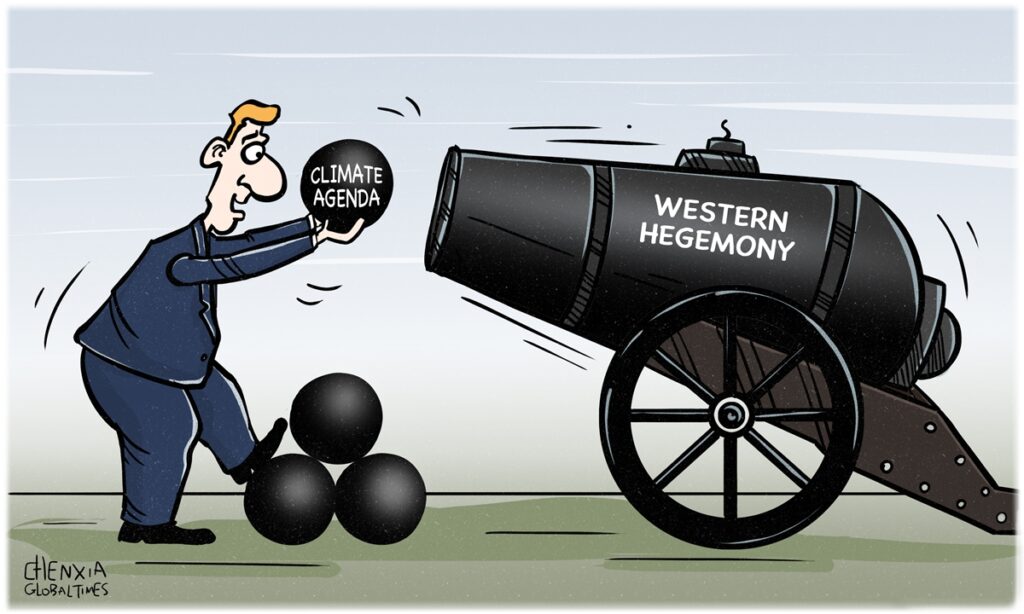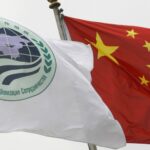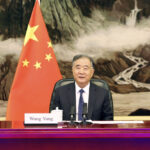The US is playing all its cards to compete with China and is continually attempting to set up new fronts. Climate change action is one among them. President Joe Biden last month signed the Inflation Reduction Act, providing support for US domestic green industries and energy transition with an unprecedented investment of $370 billion. It is worth noting that the Democratic Party has classified the above-mentioned measures as part of energy national security, underlining that supporting energy reliability and cleaner production is to lessen the US’ economic reliance on China and enhance competition with China.
Since Biden took office, many analysts have noticed that the West, especially the US, is gradually tying actions on climate change to national security. The climate security concept expressed by the American academic and political circles has brought the logic of confrontation between major powers into climate action, an activity of noble and moral significance to humankind.
The tone is completely different from the traditional climate security view, which regarded climate change as a common and shared threat to mankind. Its potential threat should not be underestimated.
Both Democrats and Republicans have proposed their plan to impose carbon border tariffs. Since both parties regard China as a threat to the US’ national security, weakening China’s manufacturing sector and excluding China’s commodities with high carbon emissions are treated as important measures to maintain the US’ national economic security.
Senator Sheldon Whitehouse, Rhode Island Democrat, in June introduced the “Clean Competition Act,” which would impose a carbon border adjustment on a range of imported goods, including fossil fuels, petrochemicals, steel, cement and fertilizer. The levy would start in 2024 at $55 per ton. As the US, especially the blue states, has low carbon emission intensity in the above-mentioned sectors, they believe that by imposing such carbon tariffs, it will enhance the US’ domestic and foreign competitiveness in “clean manufacturing” and meanwhile gain a favorable position over its electoral opponents.
Even though Republicans have traditionally been seen as negative on climate change, Congressman Kevin McCarthy, the Republican Leader, in June released the energy, climate and conservation (ECC) task force.
In addition to economic and industrial policies, some Western countries, led by the US, have also linked climate issues with human rights issues. They demanded China to shoulder more climate governance responsibilities by introducing a global climate security mechanism.
The debate over a resolution at the UN Security Council last year appeared to hint at the potentially far-reaching implications for the international governance landscape of this Western discourse that brings together human rights, security and climate change. On December 13, 2021, the UN Security Council rejected a draft resolution which was co-sponsored by Niger (Council President for December) and Ireland that would have integrated climate related security risk as a central component into comprehensive conflict-prevention strategies of the United Nations by a recorded vote of 12 in favor to 2 against (India, Russian Federation), with 1 abstention (China). The Chinese side, when elaborating its stance, stressed the need to avoid generalizing security concept of climate issues. China believes common but differentiated responsibility is an unshakeable cornerstone of the global response.
The principle clearly defines responsibilities that developed countries should assume. But if integrating climate-related security risk into conflict-prevention work mechanisms, it will allow developed countries new excuses to shirk their historical responsibilities and commitments, while pushing up China’s responsibilities. This is very unfair to China and violates the principle of climate justice in climate governance.
Tackling climate change as well as developing human rights are always goals pursued by responsible countries. However, some Western countries in the past few decades have degenerated the noble concept of human rights development into a policy tool for seeking hegemony through political manipulation. Nowadays, we have found that climate issues have been also politically manipulated by certain countries in the West under the excuse of security. The Chinese society should work with people who are truly concerned about climate change across the world, jointly resisting deceptive political manipulation on climate issues by certain groups of Western policymakers.
(Global Times)




